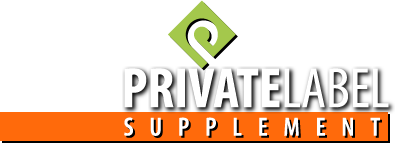Figuring out what customers want can sometimes be a challenge. More often than not, customers will approach you knowing exactly what they want and need. But there are times when they won’t, and you’ll have to be proactive and help them figure it out by asking the right questions.
A good salesperson is not only able to determine what customers really want and need, but is also able to make them realize it. The process of asking probing questions to discover your customers’ pain points is called Needs Assessment. Mastering the art of a successful needs assessment will make you the best salesperson you can be. Let’s take a look at what a needs assessment entails, so you can start using this strategy today.
What Is a Needs Assessment?
It’s really nothing more than a friendly conversation with your customer, during which you try to understand who that person is.
This is the most important part of the sales process. The way you establish a rapport with your customer and predispose him or her in your favor will determine whether you’ll make the sale or not.
Your goal is to reach the individual behind the face, to find his or her feelings and thoughts, and mainly, to figure out why they have come to seek your help. Most people have a special life situation that has pushed them to look for your products or services. Unobtrusively, ask polite questions to extract more information, so that you can make a more accurate evaluation as to how you can best help.
Try not to sound like you’re prying. This can be interpreted as aggressive or impolite. Instead, keep it light-hearted and respectfully caring.
Want or Need? Which Comes First?
It sounds a bit like the metaphysical question of what came first – the chicken or the egg? And it is. It’s hard to give a straight answer when asked: Do we want certain things because we need them? Do we really want what we need, or are our needs a totally separate category from our wants? Ultimately, what we want doesn’t necessarily have to be justified. We just want it. In that respect, needs assessment is subtle a way to figure out customer desires in more subconscious, indirect way, instead of just asking them.
Needs, on the other hand, are circumstantially brought about as when, for instance, you get sick or have a wisdom tooth pulled out.
When it comes to your customers, their needs are most likely defined by a health condition. Oftentimes, they will reach out to you, trusting your expertise, and asking for your advice. To give the best guidance possible and recommend the most effective private label supplements for their condition, you’ll have to go through a needs assessment. Here’s how to begin:
#1. Establishing a Rapport
- Make your customers feel special. Customers like being showered with attention from the get-go. Show them that there is nothing more important for you than to help them find a solution to their problem.
- Break the ice with small talk. Talking about the weather always helps, but you can also start by talking about sports or various non-political interests you may have in common.
- Create a positive atmosphere and display a friendly attitude, so you can easily transition to discussing “the problem.” If your help is needed because of a health condition and not only preventive care, be careful with your reactions when you hear the customer’s story. Keep your emotions to yourself, but show some compassion, too.
#2. Asking the Right Questions
Try to ask open-ended questions that cannot be answered only with one word, like “yes” or “no”. Remember that to reach your goal, i.e. to make a sale, you have to get the maximum amount of information from your customer in order to give an impressive product suggestion.
a) Open-ended questions begin with Who, What, Where, When, Why, How or Tell Me. By definition, the answers to such questions will help you gather more of the information you need.
There are four types of open-ended questions that are widely used in retail.
- Informative questions. These questions are asked at the beginning of the needs assessment conversation. They are used to sketch the customer’s profile, so to speak. They address basic personal information such as: How often do you take supplements and what kind? Where do you live/work? What do you do for a living?
- Key questions. With these, you should be able to find out the client’s reason for choosing your business. For example: How did you find us? Is this your first time shopping for dietary supplements? Who recommended that you take some? Why?
- Business questions. These are the questions that relate directly to your product. By asking these, you should be able to get the customer to open up and tell you exactly what it is they need or want. Something like this: What outcomes are you looking for from taking supplement? If you bring up a money question as in “How much money are you willing to spend on supplements?” – be more sensitive about it. Have more indirect approach by using words such as “high-end,” “good deal,” and “economical.”
- Add-on questions. By including one or several more questions at the end, you can find out what other products you may introduce along with the one that your customer needs the most. That way you can even make a bundle offer to totally “wow” your customer. For example, you can ask: “How often do you have time to get to the gym?” Perhaps a complete circle of supplements such as Pre-Workout, Post Workout and Meal Replacement Protein Powder will be quite appropriate to offer.
b) Close-ended questions begin with Could, Would, Did, Will, Do, Have, Are, and when answered with only “yes” or “no”, will lead your conversation to a dead end. Above all, by asking obvious questions or ones that only scratch the surface, you may lose credibility, and therefore, lose the sale.
One last piece of advice: do not turn the needs assessment into a rapid fire interrogation. Ask the question, wait for the answer and then comment on it. If you make your customers uncomfortable with way too many questions, they may turn around and never come back.
Conclusion
Think of the needs assessment step as a kind of a short interview that is done in a friendly manner. Depending on the usefulness of the information you are able to collect with your questions, you’ll be able to provide the best customer service, and ultimately, make a sale.
We at Private Label Supplement are more than happy to be your partner along the way. Check your stock and prepare for Spring with new sports supplements and skincare products. Sales are about to pick up, so get ready now, and ask the questions later!
Call our sales team at 855-209-0225 ext. 2 or email us at sales@privatelabelsupplement.com to get started today. We are waiting for your call!
All my best,
Stefani Thionnet
Stay focused and never give up!









